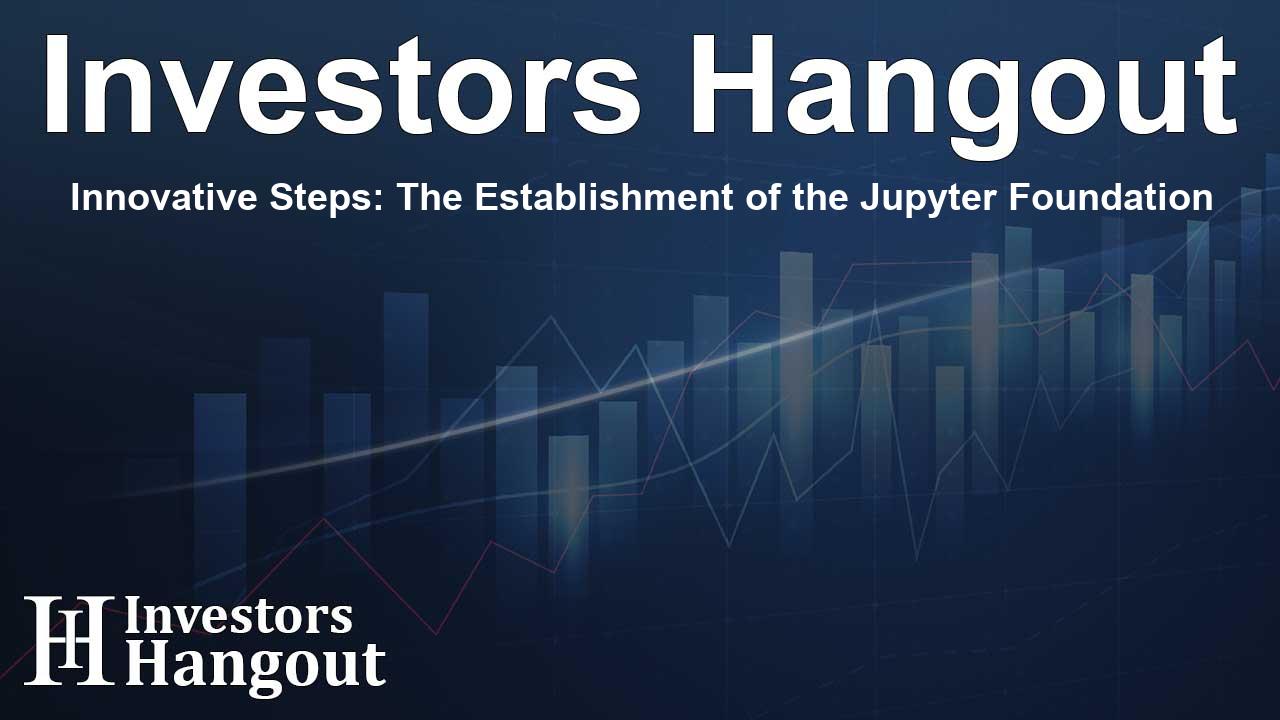Innovative Steps: The Establishment of the Jupyter Foundation

Linux Foundation Introduces the Jupyter Foundation
The Linux Foundation has taken a significant step by introducing the Jupyter Foundation, aimed at enhancing the Project Jupyter initiatives. This foundation will play a crucial role in supporting open-source software that facilitates interactive computing. With a focus on creating a standardized environment for data science and research, the Jupyter Foundation promises to address various needs of the growing community.
The Mission of the Jupyter Foundation
The Jupyter Foundation's principal mission is to ensure the ongoing technical evolution of Project Jupyter in an equitable manner. By providing essential resources, the foundation intends to uphold and advance the standards and software critical to the educational and research communities. This support includes investing in engineering resources, managing releases, fostering community engagement, and enhancing documentation, accessibility, and overall marketing efforts.
Partnerships and Collective Efforts
With the launch of the Jupyter Foundation, various organizations can now contribute sustaining engineering and funding to this transformative project. The foundation has already garnered support from industry leaders like Amazon Web Services, Google, Meta, Bloomberg, Anaconda, Quansight, and QuantStack. Such alliances enhance the credibility and outreach of the Jupyter Foundation, which is poised to drive significant advancements in data science, measurement, and educational technologies.
A Collaborative Future
Jim Zemlin, Executive Director of the Linux Foundation, emphasized the importance of this initiative, stating that the Jupyter Foundation represents a pivotal advancement in securing the future of this vital open-source ecosystem. By pooling resources and efforts, the foundation aims to broaden the impact of Jupyter on scientific discovery, technology development, and educational reform.
Supporting Voices from the Tech Industry
Industry leaders have expressed their support for the Jupyter Foundation. Brian Granger from AWS noted that Project Jupyter has become indispensable for data science and machine learning infrastructure. Companies like Google have also recognized the critical role Jupyter plays in machine learning, with their Colab platform leveraging Jupyter-based notebooks for various applications. Furthermore, organizations like Bloomberg, Anaconda, and QuantStack echoed similar sentiments, highlighting their commitment to advancing Jupyter and ensuring its sustainability.
Governance and Future Initiatives
The Jupyter Foundation will be governed by a board that includes representatives from its supporting members and input from the Executive Council of Project Jupyter. This collaborative governance structure ensures that resource allocation meets the changing needs of the project. Furthermore, the foundation aims to foster a welcoming and innovative environment where all contributors can thrive.
Opportunities for Community Engagement
For those interested in participating in the vibrant Project Jupyter community, the Jupyter Foundation provides multiple avenues for collaboration. Members can join the foundation, contributing their expertise and resources to promote the growth of Jupyter technologies. This collaborative ecosystem encourages knowledge sharing and innovation among stakeholders, helping to push the boundaries of what’s possible in interactive computing.
Wrapping Up
As the Jupyter Foundation begins its journey, it symbolizes a concerted effort towards maintaining and enhancing open-source tools that are critical for millions of users globally. This foundation not only celebrates the achievements of Jupyter so far but also looks to the future where continuous support and innovation can drive groundbreaking advancements in technology and education.
Frequently Asked Questions
What is the Jupyter Foundation?
The Jupyter Foundation is established by the Linux Foundation to support the Project Jupyter initiatives, focusing on interactive computing, data science, and technology standards.
What are the main goals of the Jupyter Foundation?
The foundation aims to ensure the technical advancement of Project Jupyter and provide resources for engineering, community management, and documentation.
Who supports the Jupyter Foundation?
The foundation has received support from prominent organizations, including Amazon Web Services, Google, Meta, Bloomberg, and others.
How can I get involved with the Jupyter Foundation?
Individuals interested in Jupyter can join the foundation to contribute their expertise and resources, fostering innovation and collaboration.
What impact does the Jupyter Foundation aim to have?
The foundation seeks to amplify Jupyter's impact in science, technology, and education, ensuring sustainability and continuous improvement in these fields.
About The Author
Contact Owen Jenkins privately here. Or send an email with ATTN: Owen Jenkins as the subject to contact@investorshangout.com.
About Investors Hangout
Investors Hangout is a leading online stock forum for financial discussion and learning, offering a wide range of free tools and resources. It draws in traders of all levels, who exchange market knowledge, investigate trading tactics, and keep an eye on industry developments in real time. Featuring financial articles, stock message boards, quotes, charts, company profiles, and live news updates. Through cooperative learning and a wealth of informational resources, it helps users from novices creating their first portfolios to experts honing their techniques. Join Investors Hangout today: https://investorshangout.com/
The content of this article is based on factual, publicly available information and does not represent legal, financial, or investment advice. Investors Hangout does not offer financial advice, and the author is not a licensed financial advisor. Consult a qualified advisor before making any financial or investment decisions based on this article. This article should not be considered advice to purchase, sell, or hold any securities or other investments. If any of the material provided here is inaccurate, please contact us for corrections.
